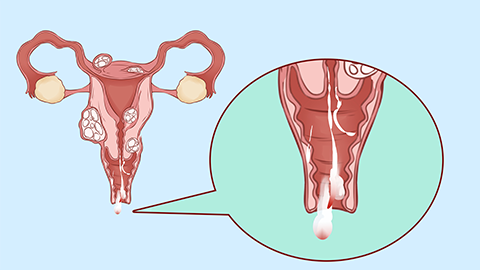What are the symptoms of uterine cancer?
Uterine cancer generally refers to malignant tumors occurring in the uterus, primarily including endometrial cancer and cervical cancer. In general, symptoms of uterine cancer may include irregular vaginal bleeding, vaginal discharge, pain, abdominal masses, and systemic symptoms. Individuals experiencing these symptoms should seek timely medical evaluation to confirm the diagnosis and proceed with targeted treatment. A detailed explanation is as follows:

1. Irregular vaginal bleeding: Vaginal bleeding outside of menstruation or vaginal bleeding after menopause are common symptoms of uterine cancer. In patients with endometrial cancer, tumor invasion of the endometrium can lead to abnormal proliferation and shedding of the endometrial lining, causing bleeding. In cervical cancer patients, the tumor may invade cervical blood vessels, causing them to rupture and bleed. Initially, the bleeding may be light, presenting as spotting, but the volume may increase as the disease progresses.
2. Vaginal discharge: Patients may experience increased vaginal secretions, which may be white or blood-tinged, and have a watery or rice-water-like appearance. This occurs because cancerous tissue can stimulate the cervical or endometrial glands, increasing secretion. When the cancerous tissue becomes necrotic or infected, it can produce purulent, foul-smelling discharge due to bacterial breakdown of the dead tissue.
3. Pain: As the disease progresses, patients may experience lower abdominal or lumbosacral pain. Pain can occur when cancerous tissue invades the uterine muscle layer, parametrial tissues, or compresses nerves. Additionally, if the tumor blocks the cervical canal, leading to pyometra (pus accumulation in the uterine cavity), patients may experience abdominal distension or cramping pain. Moreover, in advanced stages, when cancer metastasizes to other pelvic or abdominal organs, pain may occur in the corresponding areas.
4. Abdominal mass: Some patients may feel a mass in the lower abdomen. When uterine cancer progresses to an advanced stage, the uterus may enlarge or the tumor may grow outward, forming a palpable mass. The mass is more easily detected when the patient is fasting in the morning with a full bladder. It typically has a hard consistency, an irregular surface, and limited mobility.
5. Systemic symptoms: In advanced stages, patients may experience systemic symptoms such as anemia, weight loss, fatigue, and fever. Prolonged irregular vaginal bleeding can lead to anemia. Cancerous growths consume the body's nutrients and interfere with normal metabolism, resulting in weight loss and fatigue. Fever may occur when cancerous tissue becomes necrotic or infected, typically presenting as a low-grade fever, although body temperature may rise if there is concurrent infection in other areas.
If any of the above abnormal symptoms appear, timely medical consultation and detailed gynecological and ultrasound examinations should be conducted to rule out the possibility of uterine cancer. Maintaining a healthy diet and regular medical checkups in daily life can help prevent and detect diseases early.




